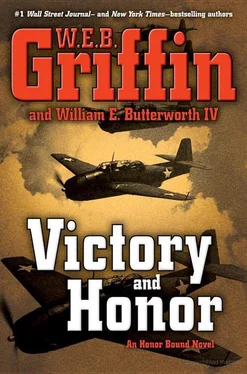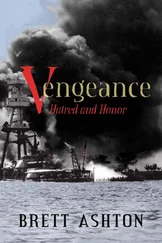The Private Dining Room The Garden Lounge Schlosshotel Kronberg Kronberg im Taunus, Hesse, Germany 1930 19 May 1945
“You’re not drinking, Clete?” Mattingly asked as he looked around the huge circular table.
Even with “everybody”—General Gehlen, Frade, Stein, Boltitz, von Wachtstein, Rodríguez, Delgano, Peralta, Vega, Dooley, and Mattingly—sitting around the table, there were enough empty chairs for twice that many people.
Clete had the irreverent thought that it looked like only half of the Knights of the Round Table had shown up for King Arthur’s nightly briefing.
“When are we flying to Berlin?” Frade responded, and when Mattingly’s face showed the answer confused him, he smiled benignly at Dooley and went on: “You’ll learn, Dooley, if they ever let you fly big airplanes, like Hansel and me, that it’s best to do so clear-eyed and not hungover.”
Mattingly frowned at Frade.
“In the morning,” Mattingly said, “you’re all going to Berlin—or that’s the plan.”
“Pour your beer back in the bottle, like a good boy, Dooley,” Frade said.
“Kiss my ass,” Dooley said.
“I’m going to ask you, Colonel Frade, and you, Colonel Dooley, to try to control your somewhat less than scintillating wit,” Mattingly said. “If you can’t, I’ll stand both of you at attention.”
“Yes, sir,” Frade said. “Sorry.”
“Turning to what happens now,” Mattingly said. “The problem of the Russians being difficult in Berlin was already being discussed at SHAEF, and a possible solution thereof had been reached when South American Airlines—more accurately, the Republic of Argentina—was added to the problem.
“The Argentine ambassador in Washington approached the State Department and asked them about flight clearances for their mercy mission. Not being aware of the Russians’ mischief, the State Department in effect said, ‘Not a problem. We will go to General Marshall and have him tell Eisenhower to take care of it.’
“Marshall’s message arrived during a staff conference, at which David Bruce was present and the subject of the Russians was under discussion.
“Eisenhower’s first reaction was to quickly decide that the Argentines would just have to wait until the problem was solved. Beetle Smith—you know who he is? Ike’s chief of staff—had another view.
“General Smith didn’t think the Russians should be allowed to ban Argentine—or any civilian—aircraft from flying from the American zone of occupation over the Russian zone into the American zone of Berlin any more than they should be allowed to question our right to fly military aircraft in and out.
“David Bruce agreed with General Smith—they usually do agree on just about everything—and then threw something else into the equation, something previously not known to SHAEF.
“South American Airways, David told Ike and Beetle—words to this effect—was an OSS asset, or close to one. Not only that, but the pilot of the Constellation at that moment over the South Atlantic en route to Lisbon was actually the OSS man in charge of the asset, a Marine lieutenant colonel who was held in very high regard by Allen Dulles.
“And there was one more fact bearing on the problem, David Bruce said. The advance element of OSS Europe was already outside of Frankfurt. General Smith asked who was running it, and David Bruce told him, whereupon the Supreme Commander said words to this effect: ‘Mattingly used to work for General White, right? He’s the officer who flew over Berlin when the Russians were still taking it in one of White’s L-4s? The right man, for once, in the right place. Let him deal with this.
“‘He might even be able to keep White and Patton from starting World War Three. Tell the Argentine OSS man to report to Mattingly, and tell the Eighth Air Force to give Mattingly whatever he thinks he needs. Keep me advised. Next problem?’
“Shortly thereafter, David Bruce dumped the problem in my lap.
“Now, there are several reasons that it is important that I deal with this to General Eisenhower’s complete satisfaction. Not least among them is that he, so far, has not joined the chorus singing, ‘Shut down the OSS now; it’s not needed’ into President Truman’s ear.
“If I—forgive the egotism—if we can handle the problem of the Russians trying to keep us out of Berlin, Allen Dulles and/or David Bruce can go to Ike and ask his assistance to keep us alive. He may not give it. Ike unfortunately thinks General Marshall walks on water, but we have to try.”
“Sir,” Frade said, “how do you plan to deal with it?”
Mattingly’s face showed that he appreciated both being called “Sir” and Frade’s tone of voice.
“At this moment, Colonel Frade, a small convoy of Air Force vehicles, under the command of a captain, is attempting to drive to Berlin. The convoy consists of two trucks and a jeep. One of the trucks is a mobile aircraft control tower. The other contains supplies.
“There is an autobahn—a superhighway patterned after the New Jersey Turnpike—running between Hanover, which is in the British zone, and Berlin. More specifically, more importantly, to the American zone of Berlin.
“The Soviets have blocked the autobahn at Helmstedt—at the border between East and West Germany. It’s just over one hundred miles—one hundred seventy kilometers—from Helmstedt to the American zone of Berlin. If the Air Force people can get past the Helmstedt roadblock, they can be at Tempelhof in under three hours. Once there, they will immediately put the control tower into operation.”
“Sir, what air traffic are they going to control?” Frade asked.
“At first light, Piper Cubs—L-4s—flying between General White’s Division Rear, on the Elbe, and Berlin. At about oh-nine-hundred hours, an Air Forces C-54, having flown out of Frankfurt, will contact Tempelhof Air Forces Field and ask for approach and landing instructions. After it discharges its cargo, it will again contact the tower, to file a flight plan back to Rhein-Main. And once it crosses the East/ West Border, a South American Airways Constellation will be cleared by Rhein-Main to proceed to the U.S. air base at Tempelhof.
“The idea is that not only do we have a right to fly into Berlin, but we are in fact doing it.”
“Sir, with respect,” Frade said, “it seems that scenario depends almost entirely on this Air Forces captain being able to talk his way past the Russians blocking the highway.”
“In other words, ‘Is there a Plan B?’ Yes, there is. In the event the Mobile Control Tower can’t get past the Russians at Helmstedt—it may, as the Air Forces captain is actually one of us, a bright chap, and actually a lieutenant colonel, and we may be lucky—but if we’re not, an Air Forces C-54 will take off at oh-eight-hundred from Rhein-Main and head for Tempelhof. It will have aboard air traffic controllers and their equipment. And me. Once that’s up and running, we shift to clearing the SAA Constellation for flight to Tempelhof.”
“And what if the Russians shoot down the C-54?” Frade asked.
“We anticipate that—probability eighty percent—they will attempt to turn the C-54 with threatening aerial moves by their fighters. We anticipate that these fighters will be YAK-3s.”
Peter von Wachtstein offered: “If you get in a fight with one or more of them, Dooley, get him to chase you in a steep climb, and then, in a steep dive, turn inside him. Try to get his engine from the side; it’s well armored on the bottom.”
“What makes you think Dooley might get in a fight with them?” Mattingly asked.
“You’ve fought YAKs?” Dooley asked.
Читать дальше












